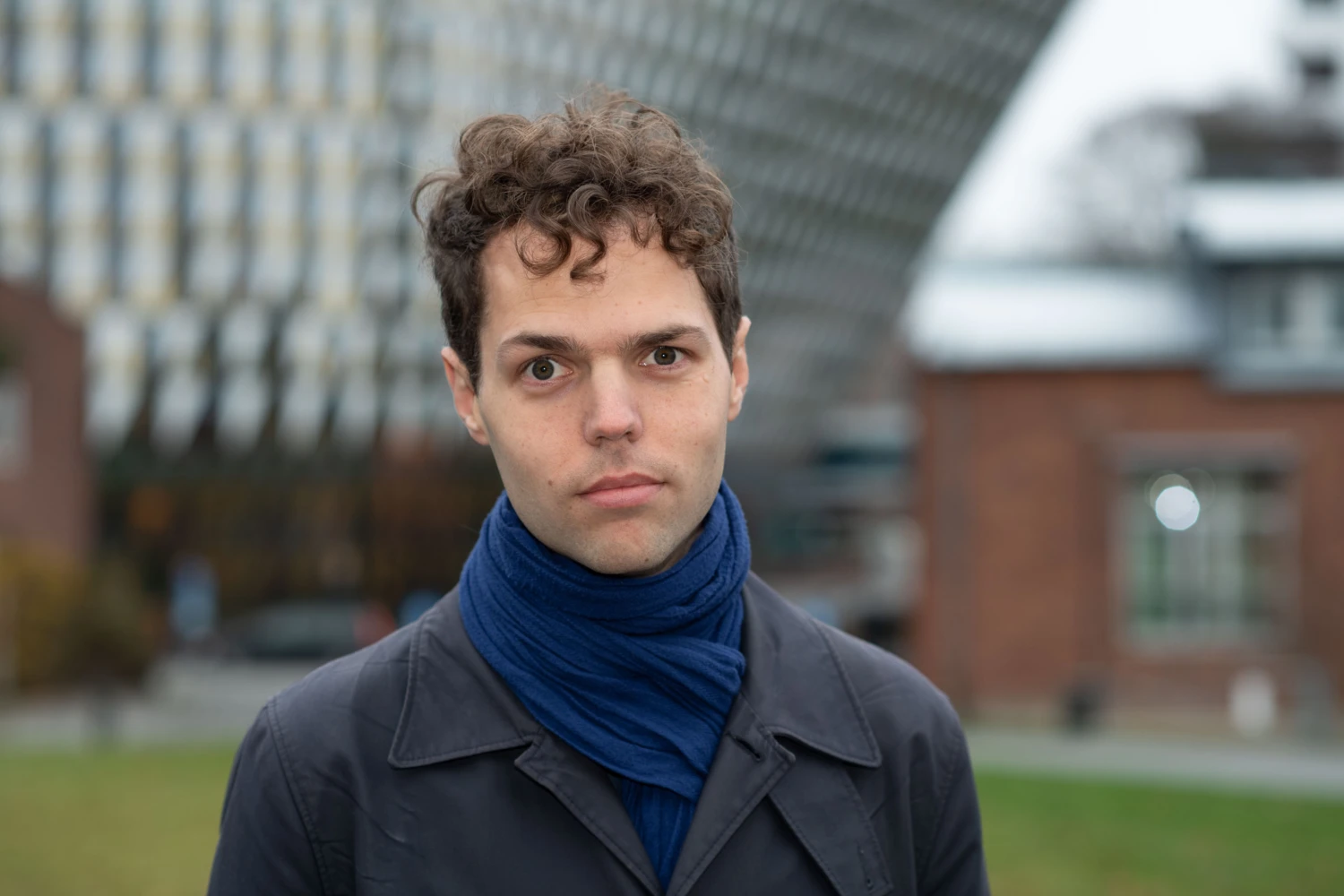
Credit: University of Adelaide / Jon Wah
An AI-powered vending machine that can hold fluent conversations wants people to collaborate and create artwork in Adelaide’s premier shopping district.
Artists James Brown and Dave Court worked with the University of Adelaide’s Australian Institute for Machine Learning (AIML) to create ARTofficial Truth Machine ATM-001, which is now on display in Rundle Place.
Rather than trading snacks for cash, the vending machine uses state-of-the-art AI software to engage in back-and-forth conversations with its users.
The futuristic creation was made as part of the Adelaide CreaTech City Challenge-an initiative to combine creativity and technology to engage audiences, support business growth and encourage investment in Adelaide’s public realm.
The artwork retains the classic look of a vending machine, but with a gritty and brutalist twist. The chassis is made of concrete and an annex cage contains a camera, display screen, and microphone.
The camera recognises when a person is standing in front of it, and once they’ve pushed the button to start, the machine greets them and initiates a spoken conversation.
Users can then collaborate with the machine to create an artwork gift, which is determined by the ‘opinion’ the machine forms of the user. Rewards include Australian native plant seeds wrapped in art posters, custom AI-made digital art, and personalised feedback written as poetry; each artwork contributes to a growing online gallery.
“It’s incredibly special that we get to create pieces bringing the South Australian public face-to-face with the recent state-of-the-art in AI technology.”Luke Heffernan, Project Manager, University of Adelaide’s Australian Institute for Machine Learning (AIML)
The machine takes on several synthetic personalities, including impersonations of a crude and casual Richard Pryor, a witty and bubbly Dame Edna Everage, and the cold apathy of an inhuman automaton.
Brown and Court collaborated with a number of South Australian experts and artisans in bringing the project to life. Their aim was to create a piece of art that flipped the traditional idea of a vending machine on its head.
AIML machine learning researchers and engineers built the AI software using GPT-3, a language model that can generate human-like responses; similar to the wildly popular ChatGPT chatbot.
The Adelaide CreaTech City Challenge is a partnership between the City of Adelaide, the Adelaide Economic Development Agency, and the Department for Industry, Innovation and Science.
ARTofficial Truth Machine ATM-001 is on display at Rundle Place, 77-91 Rundle Mall, Adelaide, South Australia until June 2023.
Comments from Luke Heffernan, Project Manager, University of Adelaide’s Australian Institute for Machine Learning (AIML):
“It’s incredibly special that we get to create pieces bringing the South Australian public face-to-face with the recent state-of-the-art in AI technology.
“It’s changing lives and the world around us, but moves so fast it would be easy to miss without interfaces like this project.”
Comments from the Hon Andrea Michaels MP, Minister for Arts:
The AI vending machine not only demonstrates the power of AI and digital art – but is also a great example of the innovative results that can arise from technology and creativity coming together to form new experiences.
The South Australian Government is proud to support exciting projects like this through the CreaTech Challenge, which has created new, fun and immersive visitor experiences that improve wellbeing and advance the cultural life of Adelaide.
We hope to keep building the state’s capabilities in the emerging CreaTech sector as we continue to harness new opportunities through exciting collaborations between business, artists and researchers.
This project is a leading-edge example of art created as a collaboration between a participant and a machine in a public space, giving visitors a chance to engage with evolving and emerging technologies.
Comments from City of Adelaide Lord Mayor, Dr Jane Lomax-Smith:
Vending machines have come a long way from the late 19th Century when the first ever models were rolled out across London selling postcards.
What I love most about this take on the humble vending machine is not just that it was made by some of Adelaide’s brightest minds or that it provides some quirky art and native seeds.
What I love is that the machine seems to like something I’m always up for and that’s a bit of friendly banter.
Comments from Dave Court, artist:
“Making public art is something that’s attractive to me because you’re not making a product to sell. The end goal is pure enjoyment of the public without any commercial transaction.”
“Whether it’s engaging with an artwork or creating a situation for people to engage with each other, or in this situation, engaging with a machine and a computer and have it interact, it’s about making experiences that are impossible to replicate in any other place.”
Comments from James Brown, artist:
“I like making transformative work where a person can be taken into another world or feel an expansive feeling through an experiential process. It’s nice to think, in the same way, people are going to walk away from this vending machine thinking ‘what just happened?'”
“Most of the things vending machines dispense are bad for you, pairing with AI which is unfortunately known for influencing us through digital marketing, often negatively, planting seeds to influence decisions. However, this machine seeks connection, vending seeds of some amazing rare native plants. As well as a free digital artwork. A commentary on how AI technology can and will be used for good and positive outcomes”
“The whole experience you’re having is real interaction with AI and, in a sense, it’s alien-like however it’s an experience that is the mirror morale on humans at this point in time. We are at the beginning of one of the biggest moments in technology and maybe aliens are just us in the future?”





